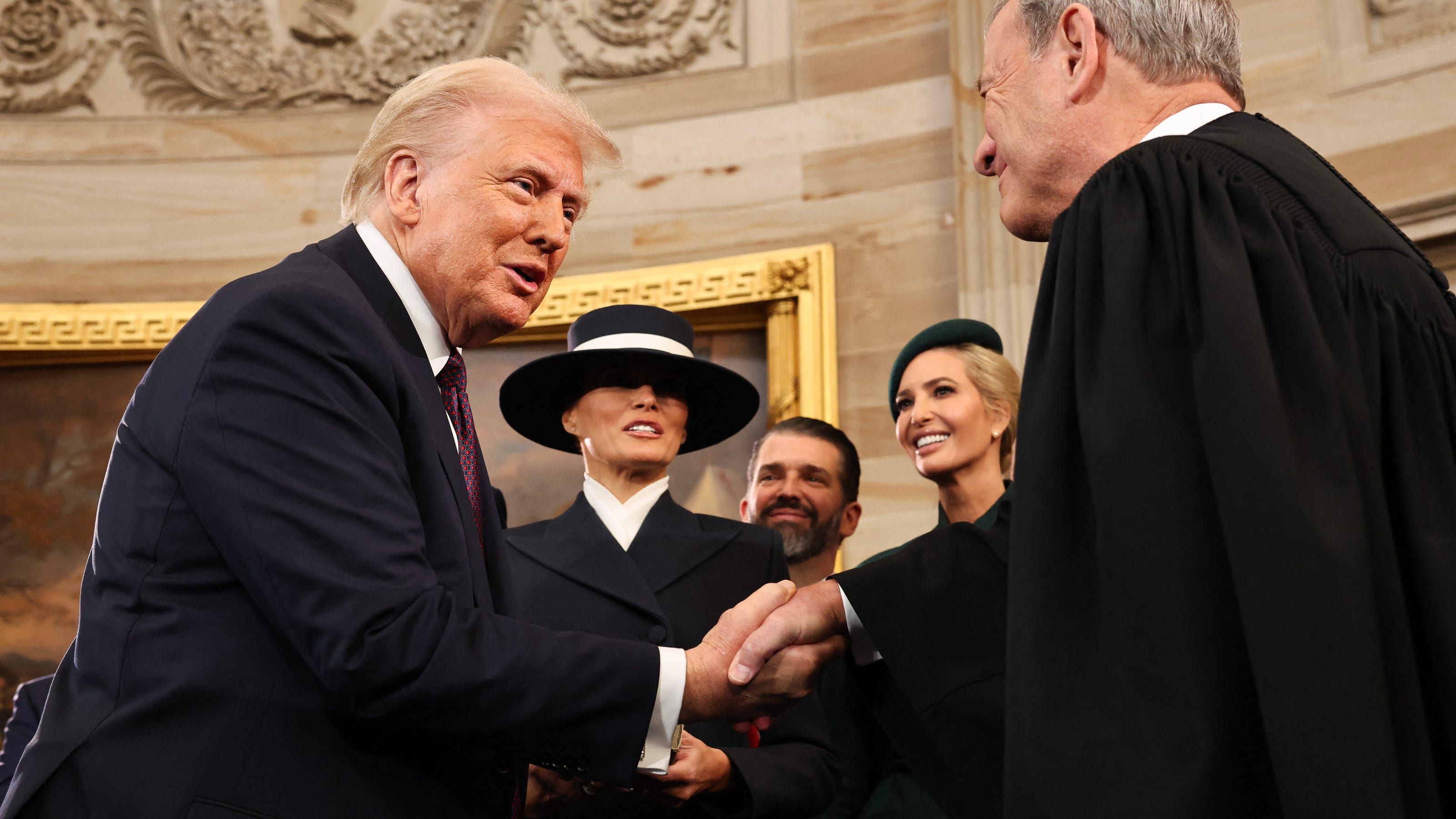Supreme Court & Trump: Shifting Dynamics
The relationship between the Supreme Court and former President Donald Trump has been nothing short of tumultuous, marked by significant appointments, controversial decisions, and ongoing political fallout. Understanding this complex interplay requires examining the appointments, the resulting ideological shift on the court, and the broader implications for American politics and the rule of law.
Trump's Supreme Court Appointments: A Conservative Reshaping
During his presidency, Donald Trump appointed three justices to the Supreme Court: Neil Gorsuch, Brett Kavanaugh, and Amy Coney Barrett. These appointments fundamentally shifted the court's ideological balance, solidifying a conservative supermajority. This was a key campaign promise fulfilled, significantly impacting the court's jurisprudence for decades to come.
Neil Gorsuch (2017): Filling the Scalia Vacancy
Gorsuch's appointment filled the vacancy left by the death of Antonin Scalia, a highly influential conservative justice. Gorsuch, considered a staunch originalist, generally aligns with conservative legal thought, contributing to a more conservative tilt on the court. His rulings have often reflected this perspective.
Brett Kavanaugh (2018): A Contentious Confirmation
Kavanaugh's confirmation process was one of the most contentious in American history, marked by allegations of sexual assault and intense partisan division. His appointment further solidified the conservative majority, adding another vote consistently leaning towards conservative interpretations of the law. His presence has been felt notably in cases concerning abortion rights and presidential power.
Amy Coney Barrett (2020): A Swift Confirmation Close to an Election
Barrett's appointment, rushed through the Senate just weeks before the 2020 presidential election, underscored the high stakes involved in Supreme Court appointments. A devout Catholic and known for her conservative views, Barrett completed the conservative supermajority, giving the court a clear ideological direction. Her judicial philosophy has consistently reflected her conservative beliefs.
The Ideological Shift and its Consequences
The appointment of these three justices created a decisively conservative Supreme Court, leading to significant changes in legal precedent and impacting areas ranging from abortion rights to voting rights to environmental regulations. The court's decisions have been criticized by some as overturning established legal norms and reflecting a partisan agenda.
Landmark Decisions Reflecting the Shift:
Several landmark decisions highlight the impact of the Trump-appointed justices. The overturning of Roe v. Wade in Dobbs v. Jackson Women's Health Organization is arguably the most impactful, returning the issue of abortion rights to individual states. This decision, heavily criticized by abortion rights advocates, starkly illustrates the shift in the court's composition and its willingness to overturn decades of precedent.
Other key decisions impacting areas such as environmental protection and gun control further underscore the conservative tilt and influence of the Trump-appointed justices. These decisions are likely to shape legal landscapes for years to come, leading to ongoing legal and political battles.
The Ongoing Political Fallout and Future Implications
The Supreme Court's decisions under this conservative supermajority have intensified political polarization. The decisions are viewed by many as highly partisan, furthering the divide between conservatives and liberals. This has led to calls for reform, ranging from expanding the size of the court to implementing term limits for justices.
The future of the Supreme Court and its relationship with the executive branch remains uncertain. The legacy of Trump's appointments will undoubtedly continue to shape legal debates and political discourse for years to come, influencing not only judicial outcomes but also broader discussions surrounding the role of the Court in American democracy.
In Conclusion: The Trump era’s impact on the Supreme Court is profound and far-reaching. The appointment of three conservative justices fundamentally reshaped the court’s ideological landscape, leading to significant and controversial decisions that will have lasting consequences on American law and society. The ongoing political fallout and debates surrounding court reform highlight the intense stakes involved in Supreme Court appointments and the enduring legacy of Trump's presidency on the nation's highest court.
